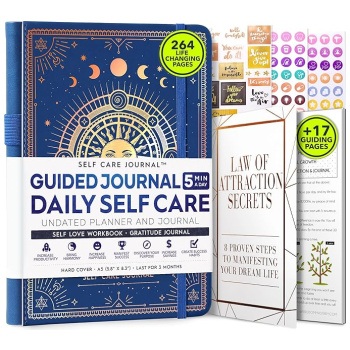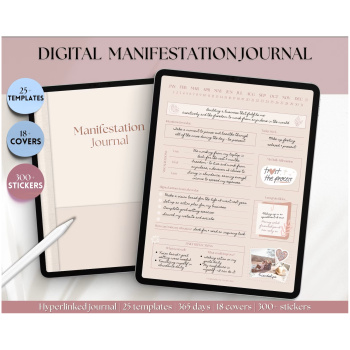Relationships are dynamic, ever-evolving bonds that bring joy, fulfillment, and companionship into our lives. However, over time, it’s common for couples to wonder if relationships can become boring. In this article, we delve into the question of whether relationships get boring and explore strategies to combat relationship boredom. By understanding the nature of relationships, recognizing the causes of boredom, and implementing effective strategies, we can nurture connections and keep the spark alive.
Why Do Relationships Get Boring?
It is natural for couples to wonder if all relationships eventually become boring. However, the experience of boredom in a relationship is not universal or inevitable. Relationships go through different stages and face various challenges that can contribute to feelings of boredom. It is essential to recognize that relationships require effort, open communication, and a willingness to adapt and grow together. While boredom may arise at times, it is not a predetermined outcome. With commitment and dedication, couples can foster a deep and lasting connection that continues to evolve and thrive.
Browse our Affiliate Products
Common Challenges in Relationships:
Relationships face various challenges that can contribute to feelings of boredom. Routine and familiarity, communication breakdowns, and a lack of novelty and excitement are some common factors. As couples settle into their daily routines, the predictability of day-to-day life can lead to a sense of sameness and, ultimately, boredom. Recognizing these challenges is crucial for finding effective solutions.
Here are some examples of common challenges in relationships:
- External stressors
- Unrealistic expectations
- Conflict resolution
- Emotional distance
- Neglecting quality time
- Differences in interests and priorities
- Loss of individual identity
- Intimacy issues
- Trust issues
- Power struggles
- Changing priorities
- Resentment and unresolved issues
- Lack of support
- and so on…
This list highlights some common challenges that couples may face in relationships, but it is not exhaustive, and individual experiences may vary.
Factors Influencing Relationship Boredom
Relationship boredom can stem from various factors that contribute to a sense of monotony and lack of excitement. By understanding these factors, individuals can gain insight into the dynamics of their relationship and take proactive steps to inject freshness and vitality. Let’s explore some of the key factors that influence relationship boredom.
Here are some examples of factors influencing relationship boredom:
1. Individual differences and expectations:
- Varying needs for excitement and stimulation can lead to differences in how individuals perceive and experience boredom in relationships.
- Misaligned expectations regarding romance, adventure, or novelty can contribute to a sense of dissatisfaction and boredom.
2. Relationship duration and the “honeymoon phase”:
- The initial stages of a relationship, often referred to as the “honeymoon phase,” are characterized by intense passion and novelty.
- As the relationship progresses, the intensity may naturally subside, leading to a potential decrease in excitement and a need for new ways to maintain interest.
3. External stressors and life circumstances:
– External factors such as work-related stress, financial pressures, or family responsibilities can take a toll on the relationship.
– High levels of stress or demanding life circumstances can reduce the time and energy available for cultivating novelty and excitement.
4. Lack of variety and novelty:
- Engaging in the same activities and routines repeatedly without introducing new experiences can contribute to relationship boredom.
- A lack of variety in conversations, outings, or shared interests can lead to a sense of sameness and a decline in excitement.
5. Emotional and physical disconnection:
- Emotional distance, lack of intimacy, or a decline in physical affection can create a sense of detachment and contribute to relationship boredom.
- Insufficient effort in nurturing emotional bonds and maintaining a physical connection can diminish the overall satisfaction within the relationship.
6. Unresolved conflicts and communication breakdowns:
- Ongoing conflicts that remain unresolved or recurring communication breakdowns can create tension and contribute to relationship boredom.
- Difficulty in effectively expressing needs, resolving disagreements, or understanding each other’s perspectives can hinder the growth and connection in the relationship.
7. Neglecting personal growth and development:
- Failing to prioritize individual growth and personal development can lead to a stagnation of interests and personal fulfillment within the relationship.
- When individuals do not actively pursue their passions and interests, it can impact the overall vibrancy and excitement of the relationship.
Understanding these factors can empower individuals to assess their relationship dynamics and make conscious efforts to combat boredom. By addressing these influences, couples can actively work towards revitalizing their connection and creating a fulfilling and engaging partnership.
Strategies to Combat Boredom in Relationships
When the initial spark and excitement in a relationship begin to fade, couples may find themselves facing a common challenge: boredom. However, with the right strategies and a proactive approach, it is possible to inject new life and vitality into the relationship. In this section, we explore effective strategies that couples can employ to combat boredom and reignite the flame of love.
Strategies to Combat Boredom in Relationships:
- Open communication and active listening: Foster an environment of open and honest communication where both partners feel heard and understood. Regularly check in with each other to discuss feelings, desires, and concerns, and actively listen to one another without judgment.
- Exploring new activities and experiences together: Break free from the routine by seeking out new adventures and experiences as a couple. This could involve trying a new hobby, embarking on a weekend getaway, or exploring different types of cuisine together. The element of novelty can infuse excitement and rekindle a sense of adventure.
- Nurturing emotional and physical connection: Prioritize emotional and physical intimacy by engaging in activities that foster connection. This may include setting aside quality time for meaningful conversations, engaging in regular date nights, or engaging in physical touch and affection to maintain closeness.
- Prioritizing self-care and personal growth: Encourage each other to pursue individual passions and personal development. Supporting one another’s goals and interests outside of the relationship helps maintain a sense of individuality and personal fulfillment, which can positively impact the relationship as a whole.
- Surprise and spontaneity: Inject spontaneity and surprise into the relationship to keep things fresh and exciting. Plan surprise dates, leave little love notes for each other, or surprise your partner with a thoughtful gesture that shows your appreciation and love.
- Cultivating shared interests and hobbies: Find common ground by identifying shared interests and hobbies that both partners can engage in together. This could involve exploring a new sport, taking a cooking class, or joining a book club. Engaging in shared activities helps create shared memories and strengthens the bond.
- Rekindling romance and passion: Make a conscious effort to reignite the romance and passion in the relationship. This could involve setting aside regular date nights, creating a romantic ambiance at home, or indulging in gestures of love and affection to keep the flame alive.
- Continual growth and learning: Embrace the idea that growth is a lifelong process. As individuals and as a couple, continuously seek opportunities for personal and relational growth. This could involve attending workshops, reading books on relationships, or seeking professional guidance to enhance relationship skills.
- Embracing spontaneity and playfulness: Allow yourselves to let loose and embrace the lighter side of life. Engage in playful activities, such as game nights, playful teasing, or even dancing in the living room. Fostering a sense of playfulness and humor can inject joy and lightheartedness into the relationship.
Note: These strategies are not a one-size-fits-all solution, and it’s important to adapt them to your unique relationship dynamics and preferences. Experiment with different strategies and find what works best for you and your partner in reigniting the spark and combating boredom. Rediscovering Excitement and Intimacy:
Seeking Professional Help and Support
If boredom persists despite efforts to revive the relationship, seeking professional help may be beneficial. Relationship counseling or therapy can provide guidance and tools for addressing underlying issues. Trusted individuals, such as friends or mentors, can also offer valuable support and advice. It’s important to remember that seeking help is a sign of strength and commitment to the relationship’s well-being.
Embracing the Ebb and Flow of Relationships:
It’s essential to recognize that all relationships experience natural ups and downs. Embracing this ebb and flow, rather than expecting constant excitement, can bring a sense of acceptance and contentment. Finding satisfaction in stability and cultivating gratitude for the love and companionship shared can bring renewed perspective and appreciation for the relationship’s journey.
Final Thoughts
While it’s natural for relationships to go through periods of boredom, it doesn’t mean they are destined to become uninteresting. By understanding the nature of relationships, acknowledging common challenges, and implementing effective strategies, couples can combat boredom and nurture connection. Through open communication, shared experiences, and a commitment to growth, relationships can flourish with renewed excitement and fulfillment. By investing time and effort, we can keep the flame of love burning bright.




